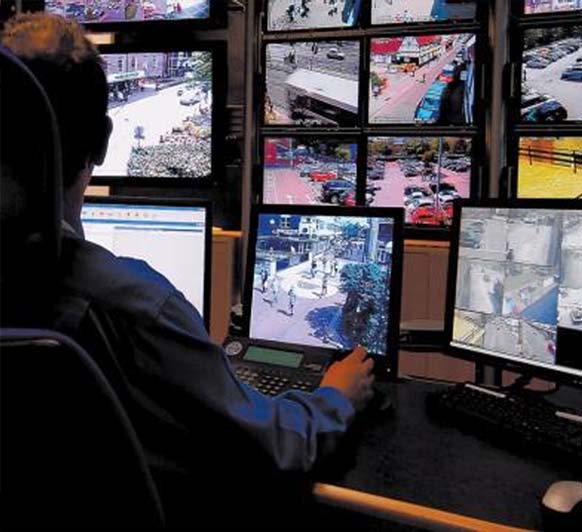
Login Into Your Account

Reset Password
Law enforcement Technology,Law enforcement Agency,Policing Technology,Smart Policing India,Homeland Security India,Border Security India,Border Management India,Cyber Crime news,Cyber Security news,Safety App,Public Safety App,Security App,Women Safety App,Police Initiative,Surveillance news,National Security news,isc event 2016,isc event 2017,scada event 2016,scada event 2017,Critical infrastructure security event 2016,Critical infrastructure security event 2017,iot summit 2016,iot summit 2017,Internet of things seminar 2016,Internet of things seminar 2017,iot seminar delhi 2016,iot seminar delhi 2017,iot conference delhi 2016,iot conference delhi 2017,top security event,security event,security event 2016,security event 2017,security conference 2016,security conference 2017,cso summit 2016,cso summit 2017,Corporate security event,Corporate security conference,security research india,homeland security research india,security think tank india
Law enforcement Technology,Law enforcement Agency,Policing Technology,Smart Policing India,Homeland Security India,Border Security India,Border Management India,Cyber Crime news,Cyber Security news,Safety App,Public Safety App,Security App,Women Safety App,Police Initiative,Surveillance news,National Security news,isc event 2016,isc event 2017,scada event 2016,scada event 2017,Critical infrastructure security event 2016,Critical infrastructure security event 2017,iot summit 2016,iot summit 2017,Internet of things seminar 2016,Internet of things seminar 2017,iot seminar delhi 2016,iot seminar delhi 2017,iot conference delhi 2016,iot conference delhi 2017,top security event,security event,security event 2016,security event 2017,security conference 2016,security conference 2017,cso summit 2016,cso summit 2017,Corporate security event,Corporate security conference,security research india,homeland security research india,security think tank india
Cyber Security student researches how to keep cars safe from hacking
 In 2015, two researchers remotely hacked a Jeep Cherokee being driven by a reporter who documented how the researchers controlled everything from the car's radio and media console to its brakes and steering.
In 2015, two researchers remotely hacked a Jeep Cherokee being driven by a reporter who documented how the researchers controlled everything from the car's radio and media console to its brakes and steering.
For Dr. Shucheng Yu, an associate professor of computer science at the University of Arkansas at Little Rock, the exercise demonstrated how vulnerable smart cars with GPS, Bluetooth, and internet connections are to cyberattacks.
"These cars have become the trend of the future," Yu said. "There could be some very severe consequences if someone hacked into the car. A car can be fully controlled by the hacker if it is not protected."
So Yu and his student, Zachary King, a junior majoring in computer science at UALR, spent the summer researching how to keep cars safe from cyberattacks. They worked on the project during an intensive eight-week summer research program at UALR.
King was one of 10 college students from across the country recruited through a National Science Foundation grant-funded project, "REU Site: CyberSAFE@UALR: Cyber Security and Forensics Research at the University of Arkansas at Little Rock."
The goal of the program is to decrease cyberattacks on people using mobile technology and social networking sites, said Dr. Mengjun Xie, an associate professor of computer science and director of the CyberSAFE@UALR program.
"The basic idea is to integrate cybersecurity and cyber forensics research with the latest technology in mobile cloud computing and social media to provide research opportunities to students," Xie said.
More than 130 students applied for 10 spots. Participants included undergraduate college students with a grade point average of 3.0 or higher who are majoring in computer science, computer engineering, math, physics, or electrical engineering.
Those selected spent eight weeks conducting research full time with a faculty mentor at the University of Arkansas at Little Rock. Participants received a $4,000 stipend, on-campus housing, a meal plan, and travel expenses.
How to protect your smart car?
In his project, "Investigating and Securing Communications in the Controller Area Network (CAN), King created a security protocol to protect smart cars from hacking. He also built an experimental environment that simulates the communication system in a smart car, which allows the security protocol to be tested through simulations
The research focuses on the development of a security protocol to protect the Controller Area Network (CAN), an internal communications system in vehicles.
"There are many ways that hackers can control CAN," King said. "Once they access it, hackers can pretty easily control your car however they want. We are proposing to add a layer of security, so if an unauthorized person accesses it, they still wouldn't be able to control your vehicle."
The security protocol protects the CAN in two ways. It authenticates messages sent through the network by creating an authentication code. This authentication code allows nodes on the network to differentiate between a valid message and an attacker's message.
The second security feature protects against replay attacks, when a hacker attempts to breach the network by repeatedly sending an old message. The protocol uses a timestamp to calculate when the network last received the message, which verifies the message's "freshness."
Yu and King are continuing their research this fall. In the future, Yu hopes to collaborate with industry and funding agencies to implement the security protocol in commercial vehicles and protect cars from hackers.
As for King, participating in this summer research program has left him considering a career in cybersecurity once he graduates in 2018.
"Three months ago, I wouldn't have been able to tell you much about cybersecurity and what a security protocol would look like," he said. "After having completed this program, I am more interested in cybersecurity than I was before, and I may end up going that route."
SOURCE: Science Daily
Newsletter
Sign Up for Monthly Newsletter
Recent Tweets
CONTACT US
Crux Center for Security
Research and Events (CCSRE)
3rd Floor, Tower-B, Unitech Cyber Park
Sector 39, Gurugram,122022
0124- 4207903, 05, 06
Copyright © 2016 Crux Center For Security Research And Events (CCSRE) | All Right Reserved
